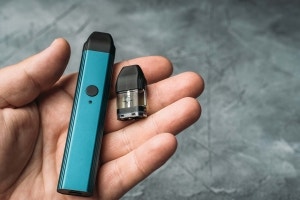CBD and Your Liver – What You Need to Know
Concerns have been raised but should you be concerned?

As CBD becomes more popular, more studies have been underway to decipher the true benefits of CBD, and of course any potential problems. It is widely understood that CBD is generally well tolerated by humans, and because of the potential benefits it may offer, CBD products have boomed in popularity.
Now CBD is still yet to be thoroughly tested enough to confirm reported health and mental wellbeing benefits, so we cannot make any medical claims on CBD, it is solely up to you to research and decide if CBD is for you. But lately, one thing has cropped up in the media around CBD – a concern with how it reacts with our liver.
What is CBD and how does it work with our bodies?
Cannabidiol, more commonly known as CBD, is a cannabinoid from the cannabis and hemp plant. It is a natural compound which doesn’t contain THC (tetrahydrocannabinol), the psychoactive element of cannabis. CBD was first made popular in 2018 when it became legalised, but many were still unsure of it until later years when more and more products hit the market. Nowadays CBD has become a household name and it’s not hard to see why with millions of content CBD users across the UK.
If you’ve been CBD-curious and done some research, you’ve probably come across the term ‘endocannabinoid system’ or ECS for short. This is because it is thought that CBD, a cannabinoid, works with the ECS due to its similarity to our body’s existing endocannabinoids, but experts are still trying to fully understand how it works. What we do know is that the ECS is a complex cell-signalling system used throughout the body, releasing endocannabinoids, enzymes and creating receptors for said endocannabinoids.
The studies on CBD and liver
There have been numerous positive studies on CBD and how it interacts with the liver, but there’s one which has been mentioned the most in the media lately. A study on mice was conducted in 2019 that looked at the effects of CBD strengths on their liver. The test was to find any potential damage, and the study did indeed find that at high strengths, the livers of these mice were damaged.
Most of the mice tolerated CBD well but those given the highest doses, equivalent to around 200mg of CBD in humans, showed symptoms of liver toxicity.
Why more research is needed on CBD
The problem with this study is two-fold. For starters, the study was conducted on mice, although they have a similar endocannabinoid system, mice and humans have very different physiology. Things such as the difference in liver size and real-life scenarios that cannot be replicated in these lab settings with mice.
Another problem with studies like this is the CBD dosage used. The dosage mentioned that caused liver toxicity is far higher than what anyone would reasonably use. Mice in the high-dosage category were given 200mg of CBD per kg of body weight which, in a human adult weighing around 150 pounds, would mean 1,300mg of CBD per day – that’s a lot higher than the typical daily dose of most CBD users.
How you can keep your liver healthy
The liver is one of the most important internal organs in the human body with three main functions that include: cleaning the blood, producing digestive liquid, and storing energy. Keeping your liver healthy is easily done and includes healthy habits you should practice anyway. These include eating a balanced diet, keeping to a moderate level of alcohol consumption, exercising regularly, maintaining a healthy weight, and avoiding recreational drugs.
Making sure that you don’t have an excessive intake of alcohol, fatty food, sugar and salt is one way to safeguard your liver against issues.
Even if damaged, the liver is the only organ in the human body that can regenerate itself. There have even been studies that have reported the potential benefits of CBD in helping improve liver function.
Final Thoughts
Overall, the World Health Organisation (WHO) along with most experts, agree that CBD and the recommended maximum dosage of 70mg is safe for the widespread use and is well tolerated by the majority of people. The widespread push of the study on mice showcasing CBD as causing liver damage should be regarded with some hesitancy and if anything, the study’s findings are more suggestive of the consequences of CBD overdose.
In conclusion, what is important is sticking with the recommended dosage of good quality CBD products as part of a wellness routine. CBD in the UK is not used to treat any medical illness but is often used as a supplement for improving wellbeing. If you have any concerns about CBD or any potential problems with your liver, it is advised to consult your doctor or healthcare professional before taking CBD.











